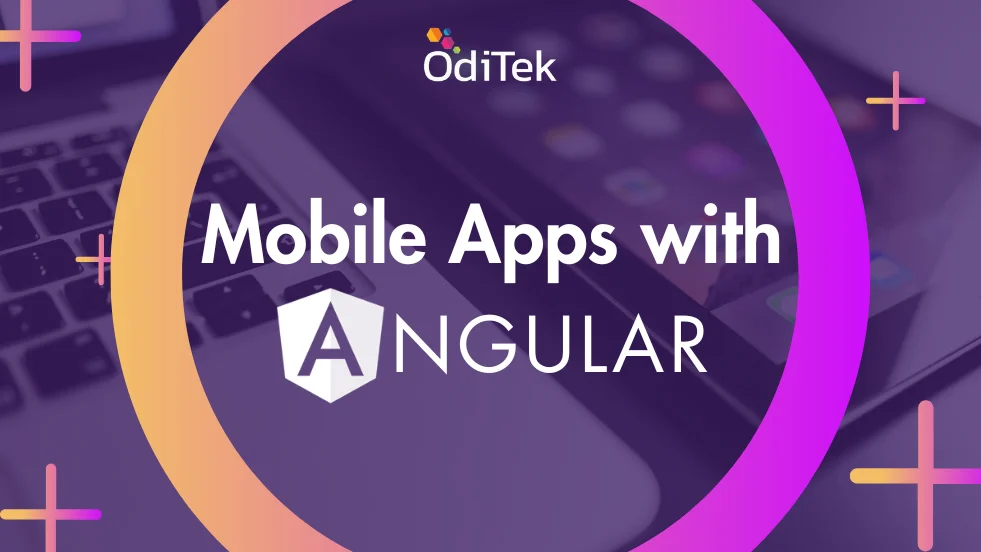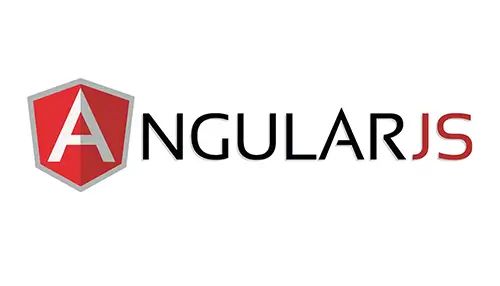Mobile apps have become essential in the business and industrial fields, driving efficiency and enhancing customer engagement. With the rise of Angular mobile development, companies can rapidly create robust, cross-platform applications that cater to both employees and customers. These apps streamline operations, facilitate real-time data access, and improve communication. For businesses, this means better customer service, increased productivity, and the ability to make informed decisions quickly. In industrial settings, mobile apps help in monitoring processes, managing inventory, and ensuring seamless workflow management.
Angular mobile development, with its reusable components and efficient performance, enables businesses to deploy scalable and responsive mobile solutions, ensuring they stay competitive and innovative in a fast-paced digital landscape.
Angular Mobile Development: Brief Overview
Angular is a powerful, open-source framework developed and maintained by Google for building dynamic web applications. It’s built on TypeScript, providing strong typing and a modular architecture that makes development easier and more efficient. Angular is known for its robust features, including two-way data binding, dependency injection, and a comprehensive suite of tools for routing, form handling, and HTTP services. These features make it a preferred choice for developers aiming to create scalable, maintainable, and high-performance web applications.
When it comes to mobile app development, Angular plays a pivotal role by providing the foundational architecture upon which mobile frameworks like Ionic and NativeScript are built. Here’s how Angular aids in mobile development:
1. Cross-Platform Compatibility
Angular’s component-based structure and modular architecture enable developers to create applications that function seamlessly across multiple platforms. By using frameworks like Ionic, which is built on top of Angular, developers can write a single codebase that deploys apps to both iOS and Android devices. This cross-platform approach significantly reduces the time and resources needed for development, as it eliminates the need to write separate code for each platform. Additionally, maintaining a single codebase simplifies updates and bug fixes, ensuring a consistent user experience across all devices. This efficiency not only accelerates the time-to-market for mobile apps but also lowers the overall development costs, making it a highly attractive solution for businesses.
2. Rich UI Components
The user interface (UI) is a critical component of any mobile application, and Angular excels in this area through its extensive library of UI components. These components, especially when used in conjunction with Ionic, allow developers to create visually appealing and highly interactive mobile apps. Ionic provides a wide range of pre-designed, mobile-optimized UI elements like buttons, forms, and navigation menus, which can be easily customized and integrated into Angular projects. This combination ensures that developers can deliver a polished and professional user experience without having to build everything from scratch. The result is a mobile app that not only looks good but also provides a smooth and intuitive user experience, which is crucial for user retention and engagement.
3. Performance Optimization
Performance is a key consideration in mobile app development, and Angular addresses this through features like Ahead-of-Time (AOT) compilation and lazy loading. AOT compilation translates Angular’s TypeScript code into efficient JavaScript during the build process, rather than at runtime. This means the app can load and render more quickly, providing a faster and smoother experience for the user. Additionally, Angular’s lazy loading feature ensures that only the necessary parts of the app are loaded initially, with additional components being loaded as needed. This reduces the initial load time and minimizes the amount of data that needs to be downloaded, which is particularly beneficial for users with limited bandwidth or slower internet connections. Together, these performance optimizations ensure that mobile apps built with Angular are both fast and responsive, enhancing the overall user experience.
Advantages of Angular Mobile Development
1. Code Reusability
Angular’s component-based architecture promotes code reusability, allowing developers to use the same codebase for web and mobile applications. This not only accelerates the development process but also ensures consistency across different platforms.
2. Strong Community and Ecosystem
Angular boasts a large and active community, providing a wealth of resources, tutorials, and third-party libraries. This support network is invaluable for developers facing challenges during mobile development.
3. Scalability
Angular’s modular architecture makes it easy to scale applications. As business needs grow, developers can easily add new features and functionalities without overhauling the existing codebase.
4. Developer Productivity
With Angular’s powerful CLI, extensive documentation, and strong typing through TypeScript, developers can write cleaner, more maintainable code, leading to increased productivity and fewer bugs.
Developing Mobile Apps using Angular
Mobile development using Angular is a versatile and powerful approach to creating mobile applications that are robust, scalable, and efficient. The Angular mobile app development framework, particularly when combined with tools like Ionic and NativeScript, offers a comprehensive solution for building cross-platform mobile apps. Here’s how Angular aids in mobile development:
1. Utilizing Ionic for Cross-Platform Compatibility
The Ionic framework is one of the most popular tools used in conjunction with Angular for mobile app development. Ionic leverages Angular’s robust framework to create hybrid mobile applications that run on both iOS and Android platforms. This approach is particularly beneficial for businesses aiming to reach a broad audience without the expense and complexity of developing separate apps for each operating system.
By using Ionic, developers can write a single codebase that works seamlessly across multiple devices. This not only speeds up the development process but also simplifies maintenance and updates.
The Ionic framework includes a comprehensive library of pre-designed components, which are optimized for mobile use, ensuring that applications are both functional and visually appealing. These components can be easily customized to fit the unique needs of any project, enhancing the user experience with minimal effort.
2. Creating Native Mobile Apps with NativeScript
For projects that require truly native mobile applications, NativeScript is an excellent option. NativeScript allows developers to use Angular to build native apps for iOS and Android from a single codebase. Unlike hybrid apps, which run in a webview, NativeScript apps access native APIs directly, resulting in superior performance and a more native look and feel.
Angular mobile app development with NativeScript takes advantage of Angular’s powerful features, such as dependency injection and data binding, to create highly efficient and maintainable code. NativeScript bridges the gap between Angular and the native APIs of the mobile platforms, enabling developers to write code once and have it execute with native performance across different devices. This approach is ideal for applications that require intensive performance or need to leverage specific native functionalities like camera access, GPS, or Bluetooth.
3. Building Progressive Web Apps (PWAs)
Angular also supports the development of Progressive Web Apps (PWAs), which combine the best features of web and mobile applications. PWAs are web applications that can be installed on a user’s device, providing an app-like experience while being accessible via a web browser. They offer offline capabilities, push notifications, and fast load times, even on slow networks.
Using Angular for PWA development ensures that the app benefits from Angular’s robust architecture and tooling. Developers can use Angular’s service workers to cache assets and API calls, providing a seamless offline experience. Additionally, PWAs built with Angular can be updated effortlessly, as they do not require distribution through app stores. This makes PWAs an attractive option for businesses looking to deliver a consistent user experience across all devices without the need for multiple codebases or extensive platform-specific customizations.
Conclusion
Integrating Angular for mobile app development offers significant advantages, such as cross-platform compatibility, rich UI components, and performance optimization. It streamlines the creation of robust and scalable mobile solutions, enhancing business operations and user engagement.
OdiTek is an expert in Angular mobile development, offering professional services to help companies remain inventive and competitive in the ever-evolving digital market. OdiTek guarantees flawless deployment and outstanding performance for mobile applications customized to meet particular business demands by utilizing tools like Ionic and NativeScript.







